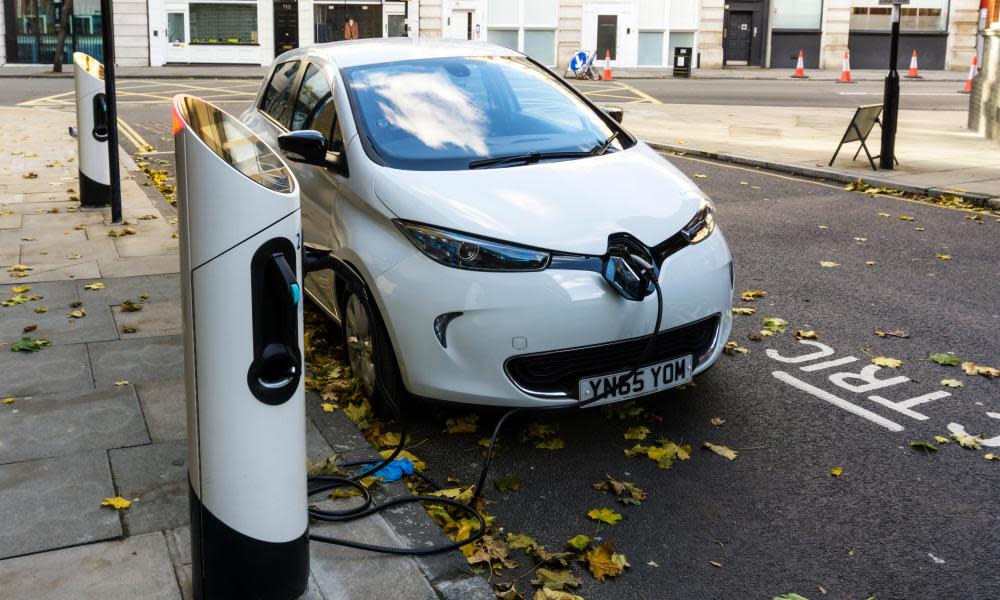Higher price of electric cars a concern for more than half of UK consumers

Expensive prices for electric cars could hold back the UK’s transition from fossil fuel vehicles, the industry has warned, amid signs that demand for electric vehicles (EVs) is waning.
Related: Electric cars: five best buys, from new models to used bargains
The premium paid for electric cars is a concern for more than half of UK consumers, according to a poll conducted on behalf of the Society of Motor Manufacturers and Traders (SMMT), the UK car industry lobby group.
Despite government subsidies, battery electric cars are still more expensive than those burning petrol or diesel, but carmakers are scrambling to ramp up production and sales in order to meet the new restrictions on emissions that came in this year.
Sales of new battery electric cars have almost tripled to 39,000 in the year to July, but there are signs that demand is falling back. Data from online marketplace Auto Trader show that the average asking price for electric cars fell 5.2% in the year to August.
Ian Plummer, Auto Trader’s commercial director, said the higher “upfront retail price of EVs is somewhat off-putting” for consumers, despite the potential savings from their cheaper running costs.
Mike Hawes, the SMMT’s chief executive, said: “Until these vehicles are as affordable to buy and as easy to own and operate as conventional cars, we risk the UK being in the slow lane, undermining industry investment and holding back progress.”
The SMMT has been calling for the UK government to broaden the subsidies offered to buyers of new electric cars to include plug-in hybrid vehicles. The withdrawal of subsidies from plug-in hybrids last year prompted a furious reaction from the industry, which argues the controversial technology, which combines an internal combustion engine with a battery, is a crucial stepping stone for consumers.
However, environmental groups argue that the best way to accelerate consumer take-up of electric cars is to bring forward bans on internal combustion engines. The government is committed to banning polluting carbon dioxide-emitting engines by 2040, but is considering moving that forward to 2035 or even as early as 2032.
Both the industry and environmental groups are united in calling for a dramatic increase in investment in charging points to make it more attractive for consumers around the country to switch to electric cars.
The UK will require as many as 1.7m on-street electric car charging points by the end of the decade, and a further 1.1m by 2035, in order to allow for a zero-emissions car fleet, according to analysis by the SMMT and consultancy Frost and Sullivan. That would equate to more than 500 new charge points per day over 15 years.


